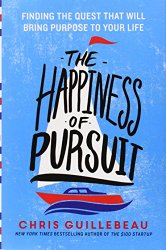In his classic book The 7 Habits of Highly Effective People Stephen Covey says:
“Your life doesn’t just “happen.” Whether you know it or not, it is carefully designed by you. The choices, after all, are yours. You choose happiness. You choose sadness. You choose decisiveness. You choose ambivalence. You choose success. You choose failure. You choose courage. You choose fear. Just remember that every moment, every situation, provides a new choice. And in doing so, it gives you a perfect opportunity to do things differently to produce more positive results.”
… How powerful is that?! He’s talking about Habit #1. Be Proactive (get the full FlashNotes book summary here)
So what’s it mean to “be proactive”? Well, for starters, it’s about taking responsibility… let’s take another look at that word: response-ability… as in: your ABILITY to RESPOND (to situations – both good and bad – in your personal life as well as your professional life).
As it turns out, this ABILITY to RESPOND is pretty critical if we’re looking to live a successful and fulfilling life. Regardless of how we differ in our definitions of Success, Happiness, Fulfillment and so on, there’s one thing we’ve got to get a handle on if we want to feel those zesty feelings of ultimate awesomeness out of our lives — and that one thing is response-ability.
Proactive people take responsibility for their lives and YOU should do it too. They recognize they’re “response-able.”
Regardless of situations or circumstances;
Regardless of conditions or conditioning;
Regardless of good genetics or bad genetics;
Regardless of all of the above and more — PROACTIVE people take FULL response-ability for how they choose to RESPOND to the various dimensions of life — regardless of the cards they’re dealt within them.
Proactive vs. Reactive
- Proactive people choose their behavior. Reactive people let others choose their behavior.
- Proactive people take control of their own emotions, turning them into empowering beliefs. Reactive people believe others can control their emotions, giving away their emotional control and power–both empowering and disempowering–to others.
- Proactive people direct their desires and take action towards what they want. Reactive people let other people direct them, allowing others to tell them what to do, and when to do it.
Reactive people are affected by their physical environment, rarely take responsibility, and often blame external circumstances — trying to blame-shift their own responsibility to others…. If the weather is good, they feel good. If it isn’t, it affects their attitude and performance, and they blame the weather.
… how different their lives could be if they only understood that responsibility isn’t about getting people to take the blame or do the work; it’s about getting yourself to do the work required to take the blame and attach an empowering meaning to it. Note: when I say “blame”, I’m referring to the personal blame of taking responsibility over your ability to respond to life’s stimuli/situations… in other words – when you fall down, will you stand back up and come back stronger? Or stay on the ground and let the ref count you out?
Take Responsibility For Your Circle of Concern
Blaming economic conditions, workplace conditions, or family conditions — however crappy they may be — is utterly useless. It doesn’t move us forward in life or in business. We always have the freedom to choose our reactions to stimuli, even if everything else is taken away. You don’t have to be (or remain) a reactive machine. Instead, you can become a proactive person. Decide on the former, and you’re screwed for life. Decide on the latter, and you’re set for life.
The quality of your language = the quality of your life
As Dr. Covey puts it: “Between the stimulus and the response is your greatest power–you have the freedom to choose your response. One of the most important things you choose is what you say. A proactive person uses proactive language–I can, I will, I prefer, etc. A reactive person uses reactive language–I can’t, I have to, if only. Reactive people believe they are not responsible for what they say and do–they have no choice.”
How to become Proactive
Instead of reacting to or worrying about conditions over which they have little or no control, proactive people focus their time and energy on things they CAN control. The problems, challenges, and opportunities we face fall into two areas–Circle of Concern and Circle of Influence.
- To become a Proactive person, focus your efforts within your Circle of Influence – the things you can do something about: like your health, your family, or work-related challenges.
- To avoid becoming a Reactive person, understand that they tend to focus their efforts in the Circle of Concern – things over which they have little or no control: the weather, the national debt, Martin Scorsese’s next big blockbuster, and so on. Don’t waste energy on stuff you can’t do anything (or very little) about.
Whew. Habit #1 is pretty deep… but now you’ve got a rock-solid foundation to work with as we dive into the other six habits.





